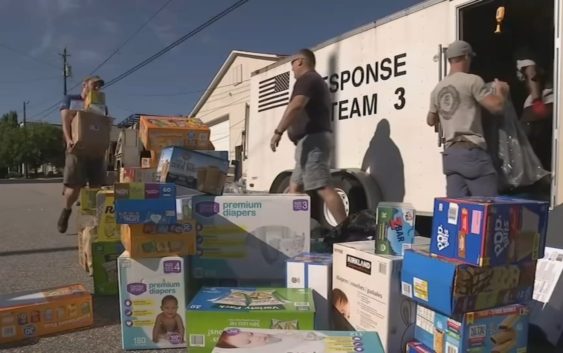- Seven months after Hurricane Helene, Chimney Rock rebuilds with resilience
- Wildfire in New Jersey Pine Barrens expected to grow before it’s contained, officials say
- Storm damage forces recovery efforts in Lancaster, Chester counties
- Evacuation orders lifted as fast-moving New Jersey wildfire burns
- Heartbreak for NC resident as wildfire reduces lifetime home to ashes
Here's what experts say you should and shouldn't donate in wake of Hurricane Ida devastation

Along with giving to reputable organizations, there are some items you shouldn’t send and others that go much further in helping.
“I would suggest right now that people not consider sending clothing,” Barry Porter, regional CEO of the American Red Cross said.
“Because of the COVID environment, there’s also a concern about exposure, things of that nature, so trying to be able to manage cost. When you sit and then try to figure out getting shipments there. Where’s it going to go, who’s going to handle it, it really becomes a challenge for organizations when we’re really focused on the basic needs of shelter, food, and medical care,” Porter said.
Porter says if you truly want to send clothing, send new items and coordinate delivery with a local, smaller organization like a church in the area of need. He points out after natural disasters, there are other items that are in higher demand.
“Things like toiletry items might be beneficial,” Porter said. “Things like dog food or pet foods might be helpful for individuals who have had to evacuate. But, the important thing is you have to have those coordinated.”
Donations, Porter says are the best way to help following disasters but donors must make sure their generosity is going to a reputable organization.
“The organizations like the American Red Cross, The Salvation Army, others who are going in and doing mass here where our real focus is about shelter, feeding, and medical need maintenance. It is best to make a financial donation to an agency that has a four-star rating and is very well respected,” he added.
Blood donations are also in high demand all year but especially following natural disasters during the pandemic.
“Always consider a gift of blood because blood drives get canceled, and constantly every two seconds, in America, somebody gets a blood transfusion,” Porter said.
Copyright © 2021 WTVD-TV. All Rights Reserved.